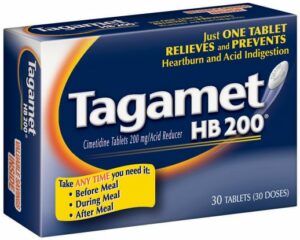Abstract:
Pure antiandrogens, like flutamide, antagonize androgen action both peripherally and centrally at the hypothalamic-pituitary axis, which leads to an increase in LH and testosterone secretion. A new non-steroidal antiandrogen ICI 176,334 [2RS)-4′-cyano-3-(4-fluorophenylsulphonyl)-2-hydroxy-2-methyl-3′- trifluoromethyl)propion-anilide) has now been discovered which causes regression of the accessory sex organs but does not increase serum concentrations of LH and androgens. ICI 176,334 binds to rat prostate androgen receptors with an affinity around fourfold that of hydroxyflutamide. When administered s.c. concurrently with testosterone propionate (200 micrograms/kg) for 7 days to immature castrated rats, ICI 176,334 (10 mg/kg) significantly (P less than 0.001) inhibited growth of the seminal vesicles and ventral prostate gland. Oral administration of ICI 176,334 at doses of 1, 5 and 25 mg/kg for 14 days to adult rats caused a dose-related reduction in accessory sex organ weights but had no effect on the testes. None of these doses caused a significant increase in serum LH and testosterone. Flutamide was around fourfold less potent and significantly increased serum LH and testosterone at the higher doses. ICI 176,334 was well tolerated. ICI 176,334 should, therefore, prove useful for the treatment of androgen-responsive benign and malignant diseases.
Author:
Furr BJ; Valcaccia B; Curry B; Woodburn JR; Chesterson G; Tucker H;
Source:
J Endocrinol, 113:13, 1987 Jun, R7-9
Language:
English
Unique Identifier:
87310192





